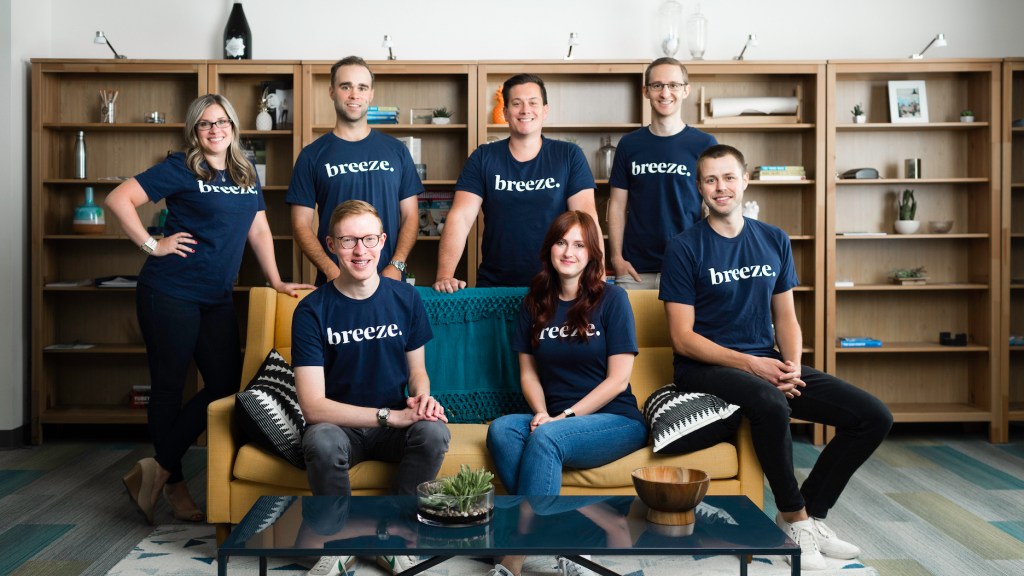Working in the world of disability insurance for a decade, Colin Nabity felt not everyone could access this type of insurance due to its nature of it being difficult to understand and underwrite.
Disability and critical illness insurance is typically income protection should someone be too sick or hurt to work. An average of 5.6% of working Americans each year will experience a short-term disability during a period of six months or less due to illness, injury or pregnancy. At the same time, 1 in 4 Americans currently live with a disability that impacts their major life activities.
Similar to other insurance products, disability insurance was sold the same way for more than 20 years: using outdated technology, data science and underwriting that didn’t provide consumers an appropriate policy based on their occupation and health. In addition, there was not a digital platform to sell this type of insurance directly to consumers, Nabity said.
Enter Omaha, Nebraska-based Breeze, the company Nabity started in 2019 with Cody Leach to enable individuals to go online and complete in 10 minutes the application process to receive a personalized quote for either disability insurance or critical illness insurance.
There are large incumbents in the space — for example Aflac, but Nabity said Breeze’s platform offers a digital approach to disability and critical illness applications, quotes and policy-making that offers consumers protection during events like cancer, heart attacks, strokes and other medical conditions that can lead to a loss of income if someone is unable to work.
The U.S. market for disability insurance was valued at $19.1 billion as of this year and was declining slightly since 2016, IBIS World reported. Breeze is reimagining these products to make them more affordable — a policy for several thousand dollars costs, on average, around $20 a month — and to provide consumer education so that purchasing this type of insurance is less intimidating, he added.
“We want a way for people to understand this type of insurance, make it more affordable and be bought completely online,” Nabity told TechCrunch. “These illnesses and injuries wreck families because they can be so financially devastating.”
Breeze raised $10 million in Series A funding in a round led by Link Ventures that Nabity boasts is the “largest first round of institutional capital ever invested in a Nebraska-based software startup.” Northwestern Mutual Future Ventures, Silicon Valley Bank, M25, Fiat Ventures and Invest Nebraska also participated in the financing.
Lisa Dolan, managing director at Link Ventures, said she found the company while examining web traffic data, where Breeze was listed among industry incumbents among consumers searching for disability.
Dolan admits that even she was not familiar, at the time, with disability insurance and has since learned that the market is larger than originally thought. She believes that by using technology to route the appropriate customer to the approach insurance, Breeze is able to reach customers that incumbent insurance carriers can’t get to.
Nabity did not disclose any growth metrics, but said he intends to use the new funding — the company’s first round of institutional capital — to grow its core products and add new products, carriers and agents to the platform. He will also increase Breeze’s headcount in the areas of software development, customer service and marketing.
“We are in the process of opening up our platform to agents that have not sold these products before, and we will need product and support teams to handle that increased volume,” he added.































Comment